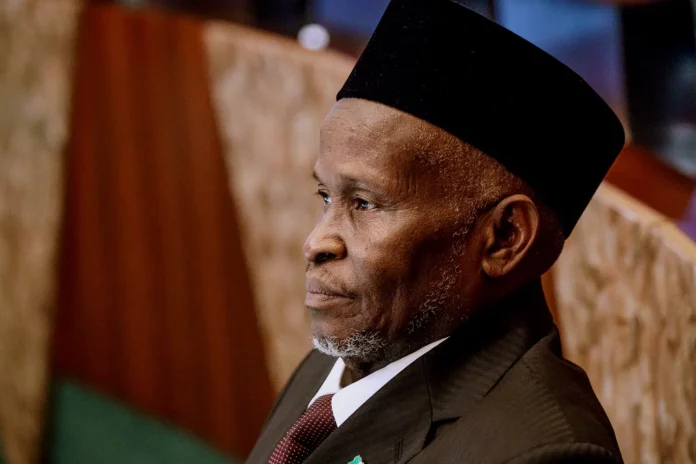By VIVIAN MICHAEL, Abuja
In a solemn charge echoing through the hallowed halls of justice, the Chief Justice of Nigeria (CJN), Justice Olukayode Ariwoola Kekere-Ekun, has issued a stern warning to newly appointed Justices of the Superior Courts of Record: tread carefully with the power to grant ex-parte orders.
The CJN raised alarm over what she described as a growing trend — the flagrant misuse of ex-parte rulings that often sidestep due process and silence the right of parties to be heard. Addressing participants at the opening of the 2025 Induction Course for new Judges, she reminded them that justice must never be delivered in shadows or haste.
Justice Kekere-Ekun cited the Revised Code of Conduct for Judicial Officers, drawing attention to Rule 3, Paragraphs 3.4, 3.6, 3.7, and 3.8, which explicitly caution judges against the indiscriminate issuance of such orders. She emphasized that the National Judicial Council (NJC) operates with a zero-tolerance stance when clear abuse of process is detected.
“Whenever you’re tempted by pressure or political interference, return to your oath — to do justice without fear or favour, affection or ill-will,” she urged. “Let that solemn vow be your anchor amid the storms of public scrutiny, the loneliness of decision-making, and the burden of complex cases.”
The Chief Justice did not mince words about the demands of life on the Bench, warning that the path ahead is not for the faint-hearted. “Judicial service exacts a heavy toll — mentally, emotionally, and psychologically,” she said.
She lauded the inclusion of sessions on wellness, stress management, and ethical resilience in the induction course. “These are not side notes; they are essentials. Judges must remain sharp, healthy, and ethically grounded despite the weight of their calling,” she said.
Quoting the late U.S. Supreme Court Justice Antonin Scalia, she offered a sober reflection: “If you are going to be a good and faithful judge, you have to resign yourself to the fact that you are not always going to like the conclusions you reach. If you like them all the time, you’re probably doing something wrong.”
“That quote,” she said, “captures the heart of judicial duty — the tug between personal sentiment and the higher call of the law. As judges, your loyalty must never lie with emotion, popularity, or pressure. It must always lie with justice.”
In his welcome address, Justice Salisu Garba Abdullahi, Administrator of the National Judicial Institute (NJI), described the theme of the induction — Enhancing Judicial Efficiency and Quality of Decision-Making — as a timely reminder of the Judiciary’s pivotal role in a thriving democracy.
He underscored that the quality of judicial decisions does more than resolve disputes — it shapes public trust, stabilizes society, and builds the Rule of Law.
“In a world of increasing complexity,” he said, “our judges must rise to the challenge — by embracing innovation in case management, holding fast to the ethics of the profession, and applying legal principles with unwavering precision.”

